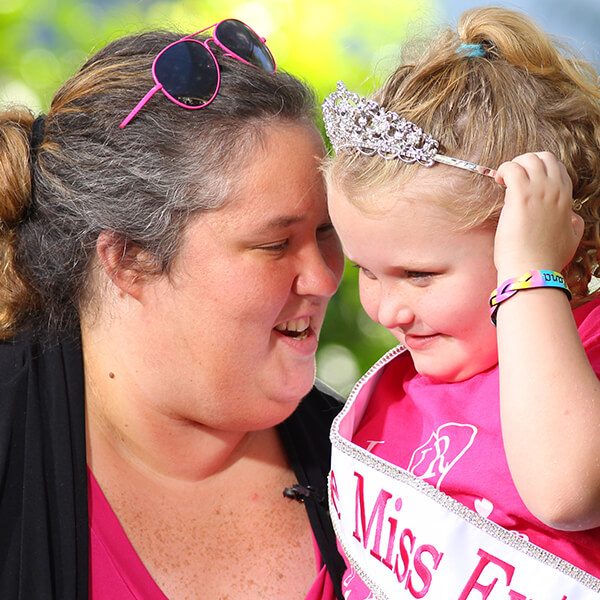Psychopaths (also known as volatile or dangerous Sociopaths) have personality disorders. Less than 1% of the human population is considered Psychopathic by nature, but they do exist. What’s more, many of them elect to have kids.
Typically, people who score highest for traits of ASPD (short for Anti-Social Personality Disorder), are hard to spot by an untrained person. Characterized by their use of persuasive but totally disingenuous charm (both overt and covert manipulation), they all have the propensity to revel in the use of pathological lies or deception.
Totally lacking remorse for their pervasive targeting of their preferred scapegoat targets for abuse, they make their way into friendship circles, online dating sites, and into social environments seeking new narcissistic supply sources to use and abuse.
Their continual vomiting of hate speech and projection of their own hyped narcissistic rivalries makes them the worst possible character type of person to raise children. But, competitive and seeking non-stop attention, many of them choose to breed with delight.
The ultimate Mommy Dearest type, their desire to be in positions of power and control tends to make them likely to want to have kids who are raised to use, abuse, target, or scapegoat. Constantly striving to foster sibling rivalries, most Psychopath mothers will have multiple children who struggle to get along both in their own lives as well as with their siblings at the family abode.
The more malignant their narcissistic streak and more Machiavellian they are by nature, the more likely a female Psychopath is to ruthlessly plow her way through life faster than a German hausfrau used to be able to plow a field for her man when and if he was not home.
But instead of sowing seeds of progress and social care, the Psycho mother does what any person of her ilk would do whenever they feel lonely or bored: she meddles, manufactures chaos, and strives to manufacture triangulations in order to keep her cold, soulless heart warm.
“They tend to ruthlessly plow their way through life, leaving their playing field littered with massive chaos and destruction and they maintain a grandiose sense of entitlement…”, says the author of “Mommy is a Psychopath! How Parental Mental Illness Impacts Children“.
According to one of their more insightful quote sources, “They selfishly take what they want, and do as they please, violating social norms and expectations without the slightest sense of guilt or regret.” The site suggests, “Because Psychopaths are master manipulators and typically wear cloaks of deceit to mask their true identity, it is often difficult to recognize them unless you have the great misfortune of living in their household.
It is their immediate family members that are able to see the inside of their real world, however, it is the immediate family members who are manipulated the most; and their world of chaos soon becomes their norm.
They also quite wisely note that, by and large, Psychopaths typically choose their prey very carefully, meaning a co-parent will be targeted for social use and abuse in order to both impregnate them and then typically will be kept on the hook as a meal-ticket, bringing them whatever they demand cash or house income supply.
But co-parenting with a Psychopath is virtually impossible. It’s more like parallel parenting for the healthier of the two individuals.
Men who seek a mate that will allow them to have a voice or opinion with regard to child-rearing or household purchasing decisions don’t stand a chance living with a woman who is ASPD / Psychopath by nature unless they themselves are an even darker and more sinister personality type. Women who suffer from the disorder don’t suffer — they revel in their own psychiatric dysfunction.
Their desire to have children never comes from a place of love or affection. Love doesn’t hurt or compete; love nurtures for the positive good and fosters empathy both for self and others.
Mommy Dearest style parents are biologically different. To them, one parents for ownership rights of a child. Children are nothing more than play toys and dress up dolls used to bolster their social ego and to use to keep them from feeling bored, dried up, used up, lonely, vacuous, or past their prime.
Having children is seen as a sign of virility in most Psychopaths. The younger they are when they start having children, the more likely they are to raise children just like them.
If a woman is a Psychopath and getting old, they may even go so far as to strive to have more children late in life or to forcibly strive to take custody of a grandchild. Again, their desire to have more children is nothing more personal than them buying a new set of sofas or household furniture.
Sure, they will brag about it for a while, but when material possessions stop looking new or garnering the Psycho public attention, they will start the process of striving to replace them with a bright and shiny new set or model.
You see, young children are the ultimate playthings for a Psychopath to raise, dote over, praise, then devalue and ultimate socially discard later when and if they don’t worship at the altar known as Mommy Dearest’s vagina. It may sound crass, but the more malignant the Psychopath, the more likely they are to equate keeping themselves surrounded and in possession of custody rights of a minor, the more likely to perceive themselves as youthful, all-powerful, and sexually desirable in their own mind’s eye.
Never truly caring about the future needs of a child with regard to psychological well-being or proper socialization, they tend to do things like raise children who themselves develop Oppositional Defiant Disorder. They tend to only praise the sickest and most shallowly perverse of all human traits — things like physical prowess on boys or beauty in girls — without regard to the monster personality types the young children are likely to develop as adults (noting that nearly all human personality traits and subconscious programming tends to happen in life between the ages of birth through age four.
Expect children of Psychopaths to be unruly, socially aggressive, have a limited capacity to exercise compassionate judgment when it comes to social reasoning, to bully, and to throw the most obnoxious of temper tantrums. In their world, all poop tends to roll downhill — so when mother has a bad day, it’s common to see her withdraw her love and affection from the children, to rage and scream or cry demanding total household submission, and their children to situationally abuse their younger siblings, pets, or other kids the very same way in public they see that mommy does it to them and daddy in private.
No one who spends time in the household with one is safe long-term from their wrath. No matter how much a Psychopathic parent dotes on a conformist or grants preferential favor to a “Golden Child”, each child in the family inevitably takes a turn feeling at the very least like a pinata assaulted psychologically and emotionally by their metaphoric verbal bat.
Any time they experience a stress trigger in life, expect them to be on their worst possible behavior, alternating by striving to make it look (for public appearance sake) like they absolutely have themselves together. Stress triggers can be something as simple as they fly off the handle at another driver who passes them in traffic, won’t get out of their way, a light turns red before they can go through it, someone honks a horn at them, or a jogger or bicyclist gets in their way. They can also be triggered by life-changing events: the stress of a move, a child turning 18 and leaving home against the parent’s will, not having the financial resources to afford an impulse buy item they wanted to purchase, having a birthday, remembering an anniversary of a special occasion, being able to hear someone chew, someone not returning to the house promptly at any given time for dinner, another person being late for an event, the wind blowing, the sun shining, a rain cloud forming… whatever.
In the mind of a Psychopath, everything in life that happens has to do with them. It either happened for them to exploit, take credit for causing, or for them to rage about. Temperamental to the extreme, they typify the hot Psychotic femme fatale diva alternating with the persona of that woman fiction writer Stephen King penned into immortality in the book “Misery”.
[You remember the one. The “hobbling” lady.]
A Psychopath parent purposefully and deliberately socially handicaps their own children for many reasons, the most obvious of which is if they cannot ever socialize effectively with their own love interests or groups of peers, they are more likely to spend the bulk of their lives tending to mom’s needs and making sure their toxic parent is never alone. Are the relationships with their adult children good?
No. In all actuality, if Mommy Dearest succeeds in raising a mini-me copycat, karma tends to get the best of child and parent both. After all, a child who is prone to narcissistic rage, temper tantrums, making ad hominem attacks, lying, manipulating, behaving in ways that are egocentric and grandiose, and simply prone to abusing other human beings or sentient creatures without remorse does not the most compassionate senior care provider make.
In fact, the nastier and more unruly a child is in younger years, the more likely they are to abuse caregivers and their family members throughout adulthood. Once they become senior citizens of themselves have health care needs that can only be tended to with the help of other people, both Mommy Dearest and their hellion offspring tend to end up spending a lifetime enmeshed, abusing one another both behind each other’s back and to their face.
Children who are saddled with an ASPD parent are well-advised to leave home at the earliest possible age. Whether they are or were raised to be the Golden Child, the Rebel, the Conformist, or the Lost Child, the best advice for all is to take personal responsibility for their own behavior, feelings, and welfare as quickly as possible, severing all ties and communication with the parent known for being… that way.
Adult children of ASPD parents tend to have C-PTSD manifest in one form or another. All tend to grow up confused about the difference between right and wrong or positive social activity, having been raised to believe things like lying, domestic violence, family back-stabbing, Narcissistic Abuse, and psychological manipulation promoting a winner-loser mentality are simply the way of the world in the modern-day and age.
With lots of self-reflection, intense Psychotherapy, and behavior modification therapy, children of ASPD parents can truly learn to re-parent their own inner child and save themselves from becoming more like their aging mother monster’s in every way. If a biologically average (rather than Cluster B) child is traumatized too deeply, chances are they will present in later childhood with a flat affectation that resembles ADD or a lack of impulse control related to their own physicality.
When they cannot stop wiggling in their seat at school and seem to have tunnel vision with regard to how their personal behavior affects others and if they also bully; it’s a dead giveaway that there is something seriously wrong happening at home with regard to having poor role models for parents. The more defiant or nastily the child speaks to teachers, authority figures, and other students, the more likely they are to simply be modeling speech patterns and social interactions they tend to witness at home.
For a mild psychopath female, that might mean she spreads rumors and lies about other children she is jealous of for being smarter, prettier, wealthier, or better liked in general. For an extreme female Psychopath in training, coached by a seriously toxic mother figure, expect her to pathologically lie, attention seek, strive to force every adult and playmate in the room to pay complete attention to her at all times, and for her to lay on the flirtatious charm thick when and if she wants something at any given time.
If an aspiring psychopath female child does not get her way, chances are she will learn how to do things like behaving erratically, lashing out with violent rage at people around her, name-calling to hurt, throwing things or smashing items of sentimental import to themselves or other people, and will do all they can to get their way.
Whatever it takes: tears, lies, threats, insults, intimidation, stealing, conning, conniving, gaslighting, manufacturing triangulations, undermining other people’s self-esteem or confidence emotionally, stonewalling, pulling disappearing acts, running with career criminal types, using sex as a commodity to get what they want, homewrecking, you name it — the older they get, the more inclined in life they are to do it.
But the Psychopath mother or matriarch role mother Grandmother of the family — she’s always the driving force propelling the caustic social activities and attitudes of her minor children. Her boys are raised to be completely reliant on a female to take care of all their house care and personal care needs, while the girls are pigeonholed into emulating whatever false, bullying, or pretentious image the toxic mother wants them to present to the world as part of their family social image.
Doomed to repeat family history patterns without intervention and proper therapy work on the spirit, children of psychopathic mothers are all at a disadvantage socially, emotionally, and intellectually speaking by or before the time they fully hit their late teens or their early adult years. Common issues or side effects of toxic parenting include but are not limited to an adult child feeling or presenting as:
- lonely, unable to form or maintain healthy relationships with others
- alternating between having incredibly low self-esteem after being berated by a toxic parent but still believing they are better than other people
- mistrusting of other people’s motivations or intentions when they are good, but easily duped by people who are not into believing the toxic person is the right person to socially promote, back, or follow
- have a pervasive sense of hopelessness in general or extreme levels of “sourceless anxiety”
- tend to compare themselves to others not because they want to but because that’s what their mother taught them to do
- they are not street-wise, tending to be easily taken advantage of in social situations by toxic people but prone to use knowledge gleaned to victimize others later on themselves remorselessly
- tend to have highly addictive personality types prone to becoming rageaholics, alcoholics, problem drinkers, drug abusers (rather than casual users), sex addicts, into B&D or S&M, and/or addicted to the thrill of childbirth
- seek status and civic attainment (high paying jobs, fancy house, luxury cars, dream vacations) but seldom are able to stay long in any one job or place as they tend to always manage to burn bridges
- prone to engaging in outright career criminal behavior like selling drugs for a living, engaging in acts of male or female prostitution, stealing, or assaulting others
- have a tendency to end up picking romantic partners very much like their own parent or toxic grandparent in looks, character, and social status
Psychopaths, when choosing mates as well as peers, tend to strive to surround themselves at all times with weak-minded [but still narcissistic and competitive or fearful] people, willing Enablers, or those who show signs of having full-blown Cluster B personality disorders. But once they stop needing a supply source to provide whatever that person is able to give, they all tend to turn on them or drop them like a hot rock.
The pattern of using, abusing, and discarding other human beings when and if they are no longer socially useful to a Psychopath is a typical Cluster B red flag. As the Psycho Mom article author says, “They [meaning the ASPD parent with psychopathic tendencies by nature] choose people with these characteristics because they are easy to manipulate, thus the psychopath is able to more easily con them into both believing they are someone else and that they are less than they think they are.
Before long, they are able to convince their mates that they need them in their lives; they classically will build them up and then start tearing them down.”
That’s where a child of a Psycho Baby Mama or Drama Queen Emotional Vampire really runs the risk of getting hurt by them. Because when and if they ever dare to stand up to a parent or a new baby is born in the family on which the Psychopathic parent can dote, their former precious baby boy or girl tends to find themselves marginalized to the extreme or worse — targeted for social, financial, emotional, and legal harm by their frivolous lawsuit filing folks.
On a plus note, any child who can escape living life under the toxic and abusive family rule of a Psychopath mother figure typically tends to go on and become not only a Narcissistic Abuse survivor, but also have the potential to become the strongest and most intuitive of people. The only personality type able to best a person with extreme ASPD symptomatology truly is an EMPATH — a person known for being gifted intellectually as well as having a depth of emotional IQ.
After being raised by the most toxic and abusive of all parents, Empaths tend to go on to become quite effective healers, community leaders, or humanitarian role models. They also tend to be loving parents who respect the lives, minds, and wishes of their own children without feeling compelled to overindulge to bargain with them or negotiate the exchange of treats for “complicit” (rather than good) behavior.





